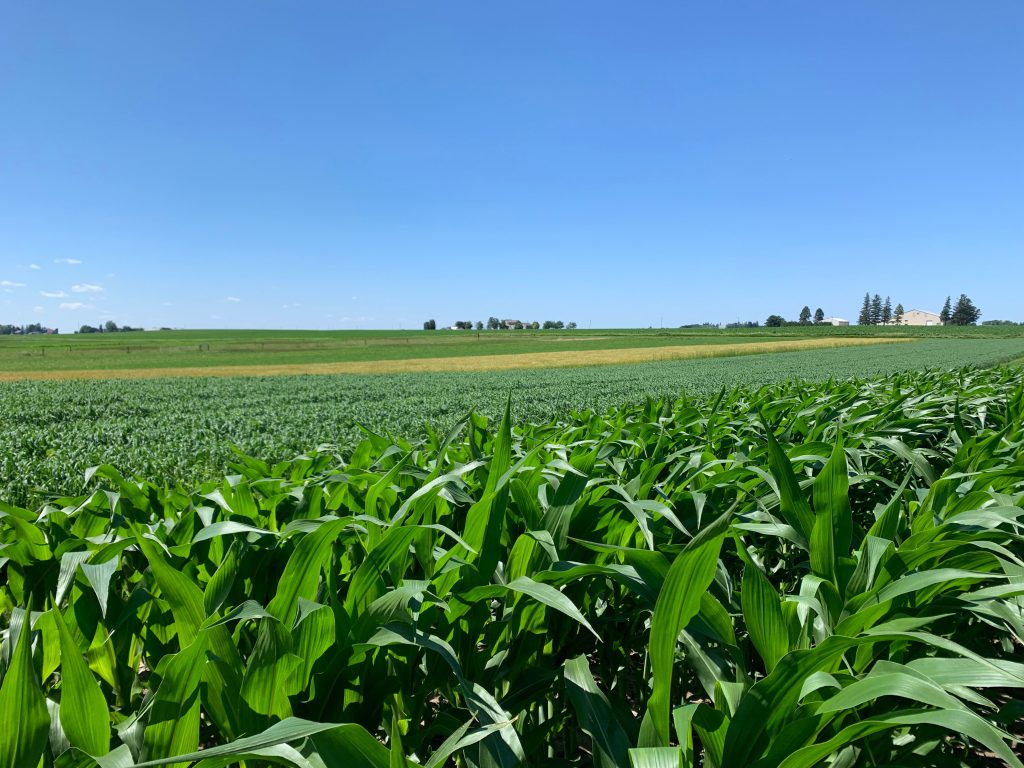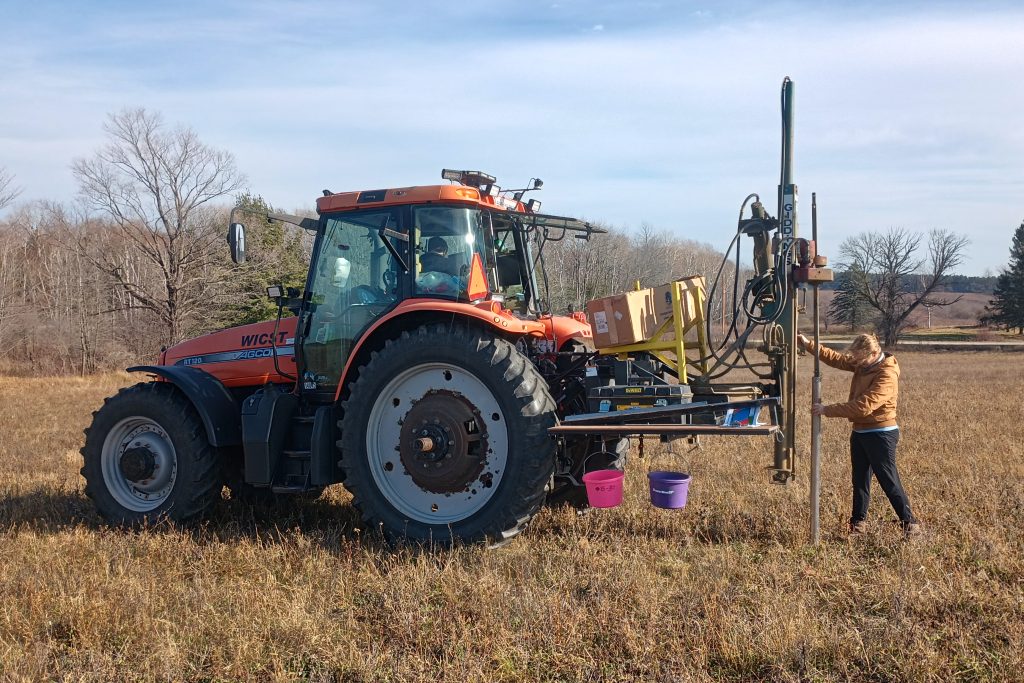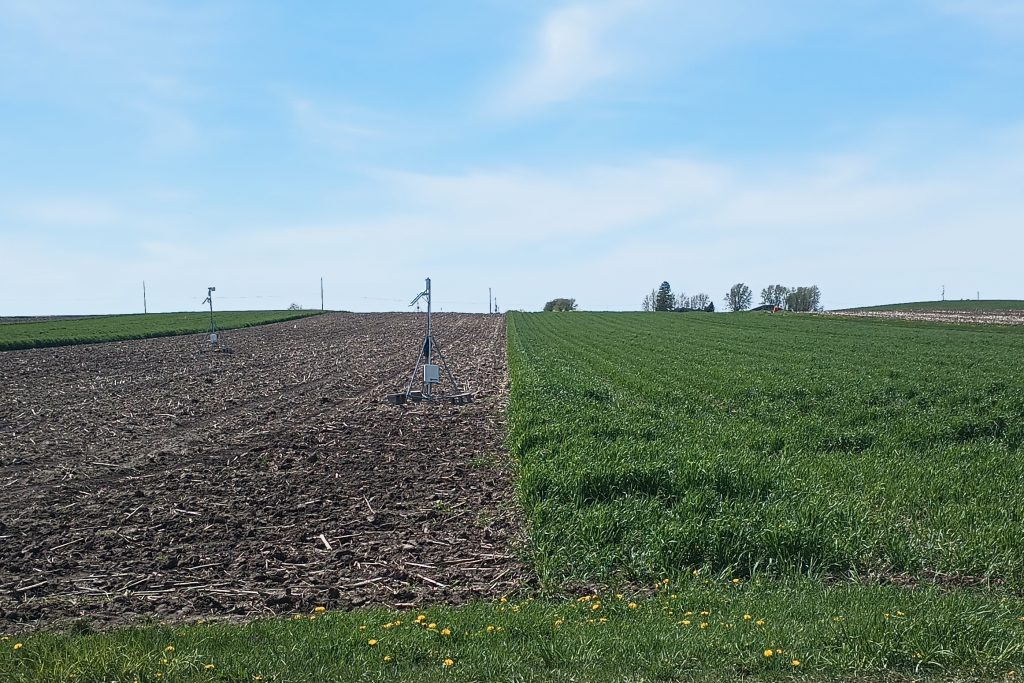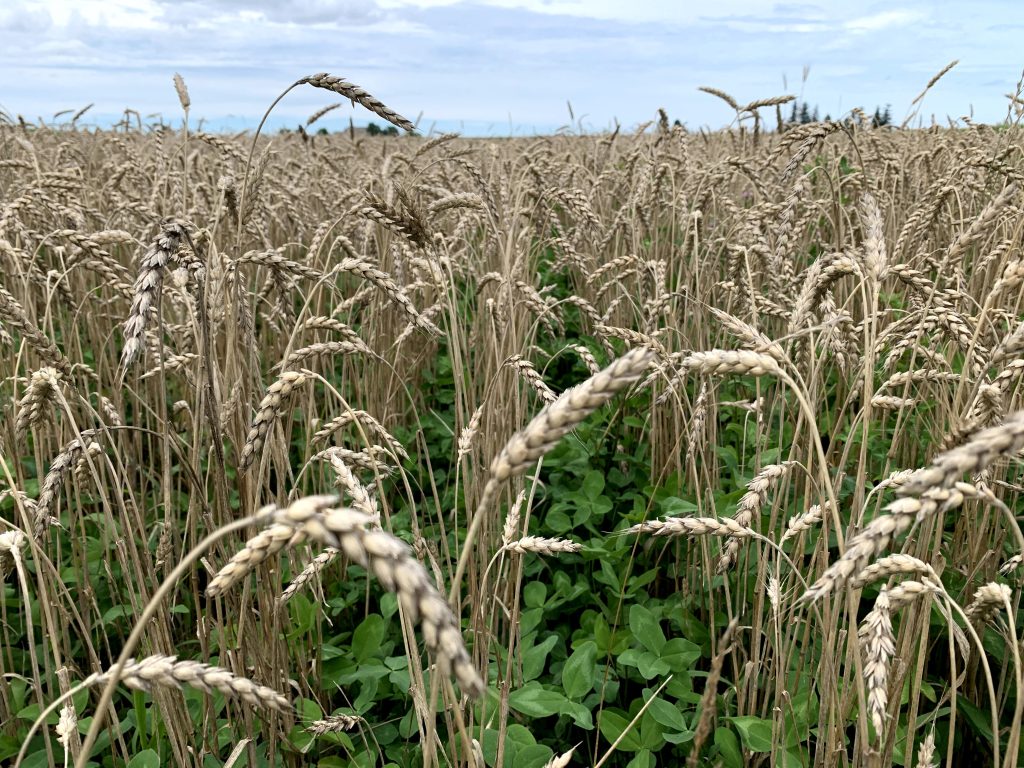
Wisconsin Integrated Cropping Systems Trial (WICST)
The Wisconsin Integrated Cropping Systems Trial (WICST) is a large-scale (24 ha), long-term (est. 1989) cropping systems experiment in southcentral Wisconsin. This trial is unique globally among long-term agroecological experiments in both its scale and breadth, with systems spanning conventional and organic agriculture, commodity-grain and dairy-forage rotations, annual and perennial cropping systems, rotationally grazed livestock, and restored native grasslands for the production of food, feed, and fuel. WICST serves as a “field lab” for undergraduate and graduate student research and education, a destination for field days and farmer-scientist collaborations, and an invaluable resource and research platform for the broader scientific community. Click here to learn more about WICST.
Soil Organic Carbon Network (SOCnet)
The Soil Organic Carbon Network (SOCnet) is a farmer-scientist collaboration monitoring long-term effects of farming practices on soil carbon (SOC) and other soil health metrics in the Upper Midwest. SOCnet is a network for accurately monitoring SOC change and helping farmers evaluate carbon-market opportunities. SOCnet links producer-driven on-farm research with long-term cropping systems experiments in Wisconsin, Iowa, and Minnesota, that serve as “hubs” for the network and play a critical role in our understanding of SOC change. On-farm sites complement long-term experiments providing essential information about how “real world” farming and environmental variation affect SOC dynamics. Click here to learn more about SOCnet.


Dairy Soil and Water Regeneration Project (DSWR)
The goal of the US Dairy Net Zero Initiative is to bring the dairy industry to greenhouse gas neutrality and improve water use and quality. Still, data are sparse on how to manage the feed production systems to help achieve these goals. The Dairy Soil and Water Regeneration project will collect data for six years to determine dairy farms’ greenhouse gas footprint and soil health in response to soil health management practices and new manure-based products. Click here to learn more about the DSWR project.
Ecological Intensification
Ecological intensification is an agricultural management approach that seeks to harness natural processes to reduce or eliminate reliance on synthetic inputs (such as N fertilizer) while simultaneously enhancing ecosystem services and maintaining or increasing system productivity. Our ecological Intensification work explores how management practices such as cover cropping, reduced tillage, and crop-livestock integration, applied alone or in concert, impact the soil health, yield, profitability, and cropping system resilience of Midwestern cash-grain systems. Click here to learn more about the Ecological Intensification Experiment at WICST.

